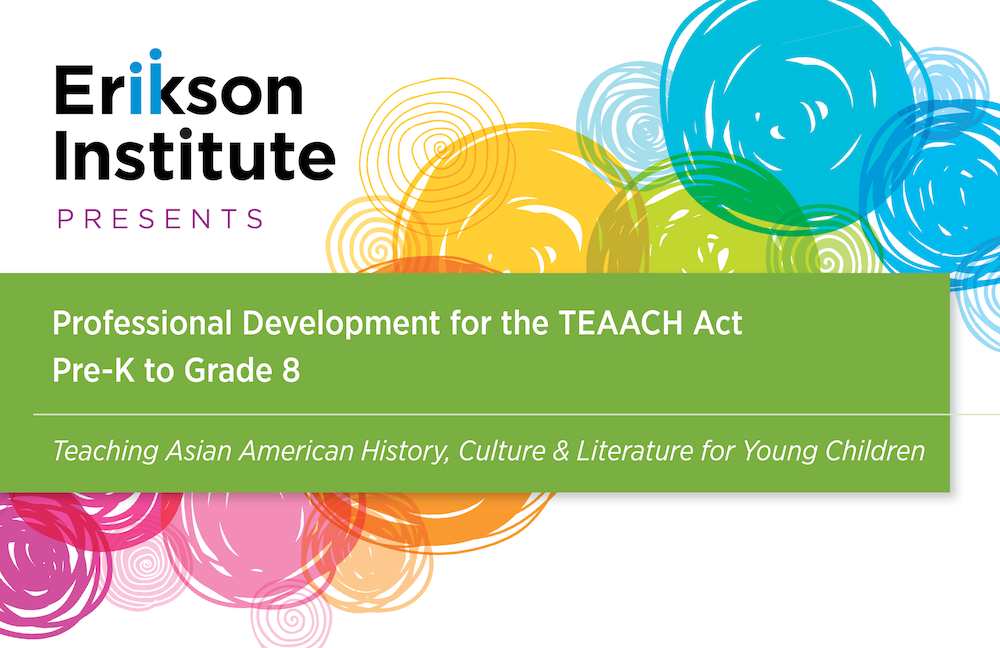Teaching Asian American History, Culture and Literature for the PreK-8 Classroom
The workshop will address how to teach Asian American history, culture and literature for the PreK-8 classroom. Teachers can earn 6.0 ISBE PD hours. This virtual two-part workshop takes place on August 16th and August 17th.
Description
Beginning in 2022-23, every public elementary school and high school needs to include a curriculum unit of instruction studying the events of Asian American history, including the history of Asian Americans in Illinois and the Midwest. There also needs to be a focus on recognizing the contributions of Asian Americans toward advancing civil rights as well as challenging the current wave of anti-Asian American hate and violence.

Our professional development for educators and school leaders will be over two days and online from 9 AM to 12 PM on Tuesday, August 16th, and Wednesday, August 17th. It is a two-day professional development workshop that will also lead to credentialing for educational leaders. Each participant will also receive a handout of helpful resources as a part of the workshop. We are also open to providing onsite professional development for your school and district with the hope of developing Asian American focused curriculum and instruction.
On Day One (August 16th), we will address these topics:
1. The history and culture of the major Asian American groups in the diaspora and here in the United States, Illinois, and Midwest
2. We will discuss the cultural and linguistic backgrounds of Asian American children and families.
3. We will examine the cultural and linguistic differences across each group as well as the diversity from within each group.
4. We will discuss the biases, stereotypes and hate toward Asian American children and their families and its long-term impact.
5. We will discuss issues of identity development and the complicated stories of Asian American children and youth balancing multiple languages, cultures, and communities.
On Day Two (August 17th), we will address these topics:
1. How to develop curriculum units and lessons that focus on essential ideas, concepts, and questions related to the Asian American experience
2. How to use authentic and culturally responsive curriculum and instruction
3. How to recognize major political events, historical figures, and traumatic experiences from a developmental perspective
4. How to integrate children’s books and young adult novels that are “mirrors and windows” into the lives of Asian American children and families
5. How to develop a strengths-based perspective of the Asian American population rather than a deficit perspective within the curriculum
Presenters
Samina Hadi-Tabassum (EdD) is an associate professor at Erikson Institute in Chicago where she teaches courses in cognitive and language development and family and culture. Her research focuses on the intersection of race, culture, and language and she recently published a book on Black-Brown race relations in American public schools. She identifies as South Asian American.
Jung Kim (PhD) is an associate professor at Lewis University in Romeoville, IL and teaches in the college of education. Her research focuses on Asian American children’s books and young adult fiction and graphic novels, racial identity development, culturally relevant pedagogy, and racial equity and social justice. Her recent book publication addresses how Asian American teachers in the US have adapted, persisted, and resisted racial stereotyping and systematic marginalization throughout their educational and professional pathways. She identifies as Korean American.